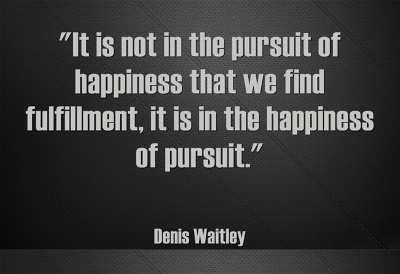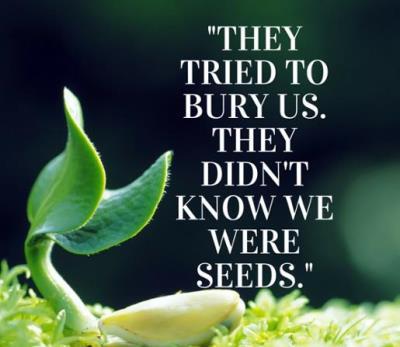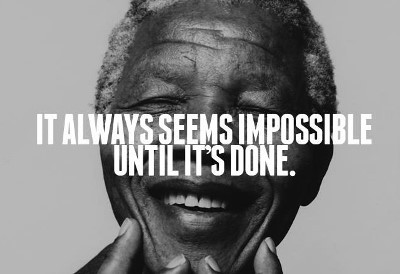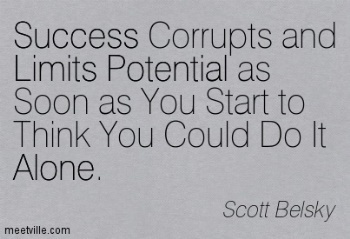Jeremie Averous's Blog, page 102
July 28, 2015
How the Collaborative Age Requires Generalists to Bridge Between Disciplines
While the Industrial Age required more and more specialists, the Collaborative Age increasingly requires generalists that are able to foster collaboration across disciplines. And this becomes increasingly recognized.
 Complex problems require multidisciplinary approaches. This is very obvious in a number of areas today, and in particular in the field of Big Data analysis. Generalists that can bridge across disciplines are in high demand. They need to be able to understand the basics of each discipline and bring to the table analytical, facilitation and coordination skills to generate the expected outcomes. They also need to be able to translate between disciplines and calm down the spirits of experts who always find difficult to work with other experts.
Complex problems require multidisciplinary approaches. This is very obvious in a number of areas today, and in particular in the field of Big Data analysis. Generalists that can bridge across disciplines are in high demand. They need to be able to understand the basics of each discipline and bring to the table analytical, facilitation and coordination skills to generate the expected outcomes. They also need to be able to translate between disciplines and calm down the spirits of experts who always find difficult to work with other experts.
I still remember some career advice I received not so long ago about the danger to be a generalist, and that I should rather specialize. I do not think it is such a good advice today. Of course it is always good to be a specialist in some field at the start of your career so as to understand what it takes, but as you advance I do think it is today quite an interesting alternative to become a generalist.
This generalist profile will become ever more valuable as the Collaborative Age spreads and the problems that need to be resolved become more complex. It also highlights the benefits of an education that includes a substantial amount of liberal arts and general knowledge.

July 25, 2015
How Timing Is The Top Success Factor for StartUps
A presentation by Bill Gross of IdeaLab on TED about startup success factors has generated a lot of comments in the last weeks.
 In this talk, he gives the results from a study he has done over success factors of startups. This study seems to have been done on a reasonably wide sample. Here are the results (the percentages indicate the % of contribution):
In this talk, he gives the results from a study he has done over success factors of startups. This study seems to have been done on a reasonably wide sample. Here are the results (the percentages indicate the % of contribution):
Timing (42%)
Team & execution (32%)
Idea (28%)
Business model (24%)
Funding (14%)
This result has generated a lot of comments, because of course, assigning to timing the number one success factor diminishes the importance of the people in the startup (working hard, having a great idea) and around (Venture Capitalists and funders in particular). It is although a tough nut to crack for those specialists and supporters of business planning and business model development.
Yet from my limited experience, timing appears to be really a significant contributor to the success of new ventures – as well as chance. In our complex world we can’t continue to believe that everything is predictable.
So, if you want to start a new venture, check if the timing is right. You can’t always know, but you can certainly have a hint.
Here’s Bill Gross TED talk (6 mins only)

July 23, 2015
How True Transformation Requires Transgression
Transgression refers to a breach, and is commonly applied to breach of law. A lot of the current business model transformations happen against regulation, or use some existing loopholes (refer to our post “How Regulation is Used to Defend old Institutions“). Going further, we should ask ourselves if true transformations do not generally require some form of transgression.
 Regulations and laws tend to defend the status-quo and therefore, need to evolve to be adapted to the new reality of society. In general, these changes lag the actual changes that happen in the world, placing the innovators in the uncomfortable situation of transgression of the established order.
Regulations and laws tend to defend the status-quo and therefore, need to evolve to be adapted to the new reality of society. In general, these changes lag the actual changes that happen in the world, placing the innovators in the uncomfortable situation of transgression of the established order.
This is a very serious issue that can stop many in their tracks, as law-enforcement can tend to be quite intimidating. At the same time, a lot of real, noticeable changes have required transgression as catalyst. Good examples include racial discrimination fights in the US and elsewhere, and even more recently, the fights of Uber and Airbnb against the establishment and existing institutions. The story of Edward Snowden and his comrades is a clear transgression that brought forth in a useful manner the issue of data surveillance by democratic states.
At the same time all transgressions are not precursors of change; many – probably most of them- are crime-related or individual expressions with no interest to change society. A transgression cannot be seen systematically as a precursor of a beneficial change.
Yet transgression needs to happen for any major change – either full or border line – and we will see more of it as the Fourth Revolution develops. We need to find a way to identify and treat generously those transgressions that are signs of change, compared to all the others that are real attacks against society. That distinction will not be easy, be prepared for a lot of debate!

July 21, 2015
Why You Need to Listen to What a Person Says of Others
I like this quote of Audrey Hepburn – “You can tell more about a person by what he says about others than what others say about him“.
 I think this is very true, and reinforces the fact that we all need to act in the way we’d like others to act with regard to us, in particular when it comes to gossiping or managing confidential information!
I think this is very true, and reinforces the fact that we all need to act in the way we’d like others to act with regard to us, in particular when it comes to gossiping or managing confidential information!
It also reminds us to listen to really discover the person we have in front of us. Active listening is a great skill that can be developed with practice and focus. We need to constantly look beyond the superficial meaning of words to apprehend the person, how she sees the world and how she sees others.
Listening to what people say of a person is important but does not replace a direct contact with a person in a situation of full listening (which requires a face-to-face encounter). Foster the person to talk about others and you will certainly have a good idea of her character!

July 18, 2015
How I Became a Businessman
It is strange how sometimes we are not fully aware of our own transformation in the eyes of our environment. It so happens that people now look at me as a businessman but I did not realize the change – and they might be right to describe me as such!
 As an engineer by formal training, I still fill-in ‘Engineer’ when asked for my profession on official documents. In reality it has been a while since I crunched engineering problems, and I did a few identity-changing work and study (coach, senior manager, writer…), but I still feel like I apprehend problems with my engineer’s mind.
As an engineer by formal training, I still fill-in ‘Engineer’ when asked for my profession on official documents. In reality it has been a while since I crunched engineering problems, and I did a few identity-changing work and study (coach, senior manager, writer…), but I still feel like I apprehend problems with my engineer’s mind.
People tend to classify others in categories and we might not realize that we just changed category! The other day someone said that I was in fact a businessman, and identified that as my profession on an official document.
Ooops! This made me realize that I can probably be identified with this category: I have now created 3 companies, and spend a lot of my time trying to create working business models and combine products and markets. Indeed recently I spent a lot of time trying to establish business partnerships and business ecosystems, and that has become my major occupation.
This person was right. I am a businessman. I did not realize. Maybe I also did not want to realize because somehow I associate this category involuntary with some negative connotation, whereas it should certainly be a respected profession.
That’s how I became a businessman – involuntarily and gradually. With this realization I now embrace this identity and understand better what I need to do. But at the same time I intend not to remain stuck in this category like any other. I still see myself as well as engineer, writer, coach, manager… And further changes will come certainly and I welcome them!

July 16, 2015
How Solar is Spreading to Unexpected Places
Following up on our post on ‘How Solar Becomes an Energy Revolution‘, some new developments place solar energy generation in new promising locations: roads!
 Installing a pilot solar generation cycle path in the Netherlands
Installing a pilot solar generation cycle path in the NetherlandsThis post on Quartz summarizes this development: ‘The day when roads will harness solar energy is drawing near‘, with loads of interesting links.
This is an obvious choice – everybody knows how asphalt roads can become substantially hot as soon as the sun shines! Some technological challenges need to be overcome, but that could be a decisive usage of public space for energy generation.

At the same time we note that a number of large solar farms projects are also spreading in many countries, including France (the image is from a project in the Alps mountains). These are huge areas covered with solar panels and can generate up to 100MW. Expect a few of these fields to develop too in the very near future, changing landscapes!

July 11, 2015
Why Fulfillment is not the Same as Happiness
We often use ‘Fulfillment‘ interchangeably with ‘Happiness‘. Fulfillment is about the achievement of something desired, promised, or predicted; while happiness is well… simply feeling happy.
 Some people live a life of fulfillment, for example caring about others in charities or NGOs or achieving their childhood dream. Yet that is not always correlated with happiness. Indeed some senior charity executives are not necessarily happy personally!
Some people live a life of fulfillment, for example caring about others in charities or NGOs or achieving their childhood dream. Yet that is not always correlated with happiness. Indeed some senior charity executives are not necessarily happy personally!
Overcoming this confusion is essential because seeking fulfillment is a way taken by many that seek happiness. In reality happiness can happen without pre-condition, it is an attitude that is deeply rooted in the present moment.
If you seek happiness, do not engage all you energy in seeking fulfillment. It may help, but is not sufficient.
Hat tip to Rajiv Vij for the insight during an ICF meeting in Singapore.

July 9, 2015
How To Resist Adversity by Growing Differently
“They tried to bury us, but they didn’t know that we were seeds” is a famous Mexican proverb. I found it inspiring when I read it and I find it is a good summary of how we should react to adversity.
 There are instances where we can’t do so much about what happens to us, and we get buried. It will be tough and painful at the time.
There are instances where we can’t do so much about what happens to us, and we get buried. It will be tough and painful at the time.
But what is really important is to learn and grow again differently and taking into account the experience. What is important is also to learn from the experience of what happens to others next to you if they get buried too.
Strong adversity will make us eventually stronger. We will grow into a bigger and stronger self.
When faced with huge difficulties and if you feel you might succumb, let go and focus on growing back different. Be a seed of something new and unique.

July 7, 2015
Why It Always Seems Impossible Until It’s Done
“It always seems impossible until it is done” is a famous quote by Nelson Mandela. To all of us who try to do things outside our comfort zone, or try to change the world (or, in a more limited manner, some organizational entity), it sounds very true. And always related to the tough ancillary question: if it does not happen yet, should be persevere?
 The fact is that in complex systems (our world), change will be sudden and what looked like an abysmal failure or a mediocre endeavor one day might become a sudden success overnight. At the same time it is difficult when we are in the midst of action to realize what is the amount of progress we might be making.
The fact is that in complex systems (our world), change will be sudden and what looked like an abysmal failure or a mediocre endeavor one day might become a sudden success overnight. At the same time it is difficult when we are in the midst of action to realize what is the amount of progress we might be making.
A significant level of perseverance is always needed to cross the stage where it seems that progress is very little until we reach effective change. And we are always surprised as how change can be sudden and widespread when it occurs. It takes a lot of background work in a lot of areas to effectively create change.
What is important is to have and to kindle the vision of what we want to achieve. If it’s ambitious it will look impossible. Just go and do it! It will be long, and it will eventually happen.

July 4, 2015
Why You Should Not Let Success Isolate Yourself
Success isolates. It may not look like it, because success breeds courtship by a number of followers praising you all the time, but the truth is that success does isolate from true friends and trusted feedback. At least if we let it happen.
 For the creative, and for entrepreneurs, which are subset of the creative, this is a major issue, because exchanging ideas and having real, tough conversations with others is at the source of creativity. Thus if the successful creative lets isolation take place as per the natural evolution of things, creativity will dry up!… And so will success, one day or the other
For the creative, and for entrepreneurs, which are subset of the creative, this is a major issue, because exchanging ideas and having real, tough conversations with others is at the source of creativity. Thus if the successful creative lets isolation take place as per the natural evolution of things, creativity will dry up!… And so will success, one day or the other
Actually the rule should be that more success should leave more time to create trustful, deep relationships. It will require a lot of effort because success tends rather to breed superficial relationships with many people that want to take a lot of time. Yet again and again, I have observed how ‘successful’ people became more and more isolated from their true friends that could tell them the truth, how tough and difficult to hear it could be.
It can be tough to get constructive contradiction from friends, but that’s the only way to grow. If you encounter success, beware of the isolation trap and how it will limit your potential!




